Is Sensodyne Cruelty Free? Uncover the Truth About Your Toothpaste
“One smile can change a day, but your choice of toothpaste can change the world. Ever considered if Sensodyne, your trusted toothpaste brand, is cruelty-free?” As a devoted advocate of ethically made products, I believe in imparting knowledge that empowers you to make thoughtful decisions. So, let’s delve into Sensodyne’s animal testing policies and find the truth.
In this piece, we will journey together to scrutinize what goes on behind the scenes at Sensodyne – are they friends or foes of our furry ones. We will also scout out some cruelty-free alternatives to bring a compassionate twist to your oral hygiene routine.
Let’s keep our smiles bright, our oral health robust, and our global consciousness awake. Your personal choices contribute to a kinder world, and I’m here to guide you every step of the way!
Sensodyne and Their Animal Testing Policy
Sensodyne, a renowned brand in dental care, is not considered cruelty-free. Unfortunately, the brand still conducts animal testing, especially in regions where it is legally required. For instance, countries like Mainland China enforce animal testing for safety assessments, and Sensodyne complies with these regulations.
Moreover, Sensodyne is listed on PETA’s “Companies That Do Test on Animals” list. PETA, a prominent animal rights organization, highlights companies that continue animal testing, influencing consumer awareness and ethical purchasing decisions.
Sensodyne’s ownership adds another layer to its animal testing policy. The brand is owned by GlaxoSmithKline (GSK), a large pharmaceutical company that also conducts animal testing when mandated by law. Despite having policies that support the development of non-animal testing methods, GSK continues these practices out of regulatory necessity, impacting its subsidiary brands like Sensodyne.
Notably, Sensodyne does not have its animal testing policy publicly available on its website. This lack of transparency can be worrying for consumers who prioritize ethical considerations. Although Sensodyne supports advancing alternative testing methods, it conducts animal tests when unavoidable. This stance prevents the brand from earning cruelty-free certifications from organizations like Leaping Bunny or PETA.
In summary, Sensodyne operates in markets with stringent regulations requiring animal testing. While the brand supports the development of alternative methods, it continues animal testing to comply with laws, which prevents it from achieving a cruelty-free status.
The Reasons Why Sensodyne Cannot Be Considered Cruelty-Free
An Overview of Sensodyne’s Animal Testing Practices
Sensodyne cannot be considered cruelty-free due to its adherence to animal testing where mandated by regulatory authorities. Despite claims of supporting alternative testing methods, the brand lacks a publicly disclosed policy ensuring it does not engage in animal testing.
One major factor contributing to this perception is Sensodyne’s inclusion on PETA’s list of companies that conduct animal testing. Moreover, the absence of third-party cruelty-free certifications, such as those from Leaping Bunny or PETA, further corroborates Sensodyne’s involvement in animal testing practices.
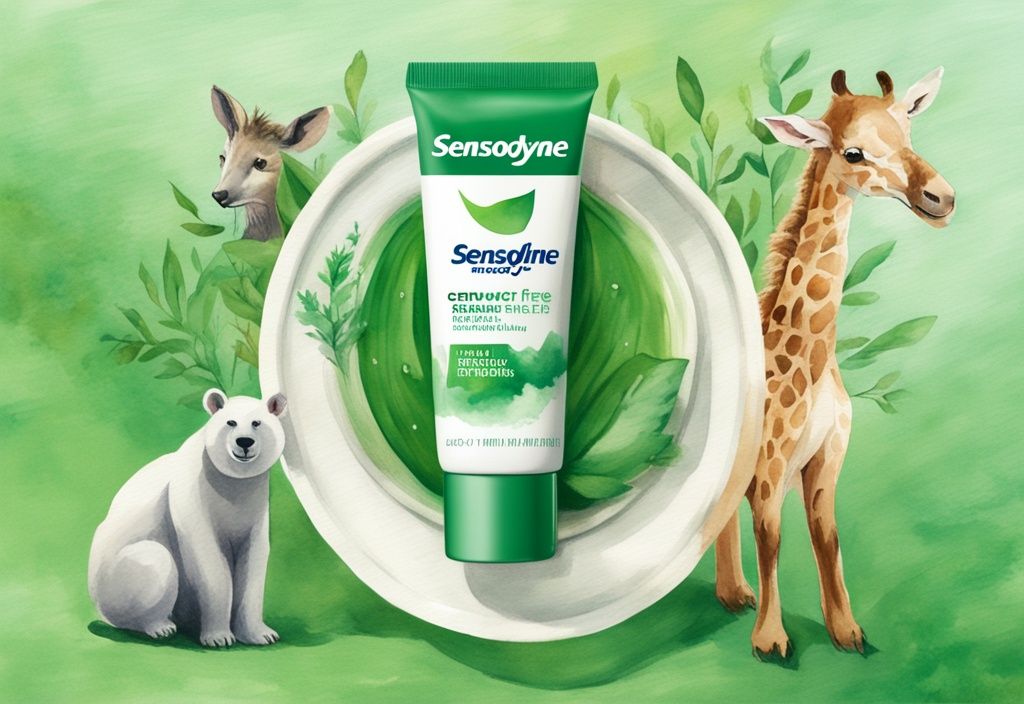
Unpacking GlaxoSmithKline’s Stance on Animal testing
Sensodyne’s parent company, GlaxoSmithKline (GSK), also contributes to the brand’s non cruelty-free status. GSK conducts animal tests when legally required, supporting alternative testing methods in theory but not in exclusive practice.
This approach is driven by regulatory requirements in various markets that mandate animal testing for product safety assessments. Consequently, GSK’s general policies on animal testing extend to its subsidiaries, including Sensodyne. Therefore, consumers aiming to use cruelty-free products might steer clear of GSK-owned brands due to these overarching policies.
By understanding these factors, it becomes clear why Sensodyne does not meet the standards set by cruelty-free advocates. The combination of GSK’s policies and regulatory compliance issues means Sensodyne is unfortunately tethered to animal testing practices, preventing it from being considered a cruelty-free brand.
The Impact of Sensodyne’s Testing Policies on Consumers
Many consumers are increasingly questioning Sensodyne’s ethical stance and opting to boycott the brand due to its involvement in animal testing. Sensodyne’s policy of conducting animal tests where required by law, such as in markets like Mainland China, has fueled significant consumer backlash. This has led to a rising trend where ethical consumers are seeking out and switching to brands explicitly certified as cruelty-free by organizations like Leaping Bunny or PETA.
The label “cruelty-free” has gained substantial importance, heavily impacting purchase decisions. Consumers are becoming more aware and informed about animal testing practices, preferring to support products that do not involve animal harm. Advocacy groups and ethical bloggers are vocal about their disapproval of Sensodyne’s practices, influencing their followers to avoid the brand. These groups champion cruelty-free alternatives, further shifting consumer preferences towards brands that align with ethical and animal-friendly policies. This increasing awareness and activism indicate that the demand for cruelty-free products will continue to grow, compelling brands to reevaluate their testing protocols and transparency.
How Consumers are Reacting to Sensodyne’s Practices
I’ve noticed more and more people around me turning away from Sensodyne in favor of cruelty-free brands. Sensodyne’s involvement in animal testing, especially in regions where it’s mandated by law, has left a sour taste for many. It’s disheartening to think that such a well-known brand still relies on outdated practices that harm animals.
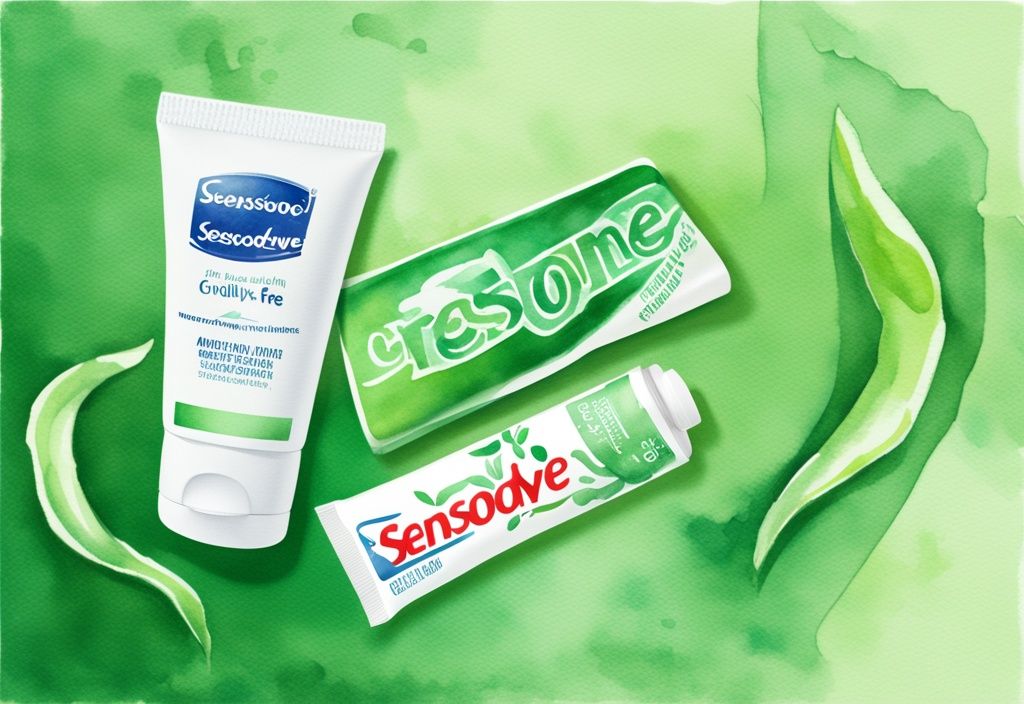
As someone who’s committed to non-toxic living, I can’t help but feel encouraged by the growing community of like-minded consumers. People are more informed now, actively searching for products that align with their ethical values. This shift in consumer behavior is largely fueled by the passionate advocacy of ethical bloggers and organizations like PETA and Leaping Bunny. They aren’t just spreading the word but are also embodying the change we wish to see.
I’ve personally stopped using Sensodyne and have found some fantastic cruelty-free alternatives that work just as well, if not better. The silver lining is that it’s forcing more brands to rethink their practices and prioritize transparency and sustainability. This wave of consumer activism is a powerful testament to the impact we can have when we stand up for what we believe in.
Cruelty-Free Toothpaste Alternatives for Sensodyne Users
When seeking alternatives to Sensodyne, several certified cruelty-free brands stand out for their commitment to ethical practices and high-quality dental care products. Here are some notable options:
Switch to These Certified Cruelty-Free Toothpaste Brands
- Tom’s of Maine: Known for its natural formulations, Tom’s of Maine strictly adheres to cruelty-free standards. I love that they offer various flavors to cater to different oral care needs. Their approach always feels like a caring nudge towards a more ethical choice.
- Hello Products: With its fun and engaging branding, Hello Products combines effective oral care solutions with a strong commitment to cruelty-free practices. Their wide range of options makes the switch enjoyable and guilt-free. For those interested in eco-friendly art supplies, check out our guide on the best non toxic acrylic paint.
- Dr. Bronner’s: Renowned for its eco-friendly and Leaping Bunny certified products, Dr. Bronner’s keeps social consciousness at the forefront. Their toothpaste options are both effective and ethically crafted, which resonates deeply with my values.
- Burt’s Bees: A trusted name in natural personal care, Burt’s Bees ensures their toothpaste is cruelty-free, with no harm to animals during production. It feels great to support a brand that aligns so well with ethical standards.
- Jason Natural: Focused on natural and organic ingredients, Jason Natural guarantees cruelty-free formulations. It’s a relief knowing there’s a reliable and ethical choice for oral care readily available.
What to Bear in Mind When Choosing a Cruelty-Free Toothpaste
When selecting a cruelty-free toothpaste, consider the following factors to ensure your choice aligns with ethical standards and provides effective dental care:
- Certification: Look for certifications from reputable organizations such as Leaping Bunny or PETA. These certifications are your assurance that the company upholds rigorous cruelty-free standards.
- Commitment to Non-Testing: Verify that the brand does not test on animals at any stage of product development, including both ingredients and finished products. This ensures comprehensive cruelty-free practices.
- Avoidance of Third-Party Testing: Make sure the brand does not engage in third-party animal testing. Outsourcing tests to other companies can undermine their cruelty-free commitments, so transparency here is crucial.
- Transparency: Opt for brands that are open and clear about their policies and practices regarding animal testing. This kind of transparency is often a positive indicator of their genuine ethical commitment.
- Ethical and Sustainable Practices: Consider the brand’s overall ethical practices, including sustainable sourcing and environmental responsibility. Brands dedicated to holistic ethical values tend to extend their cruelty-free principles to other areas, which can make all the difference.
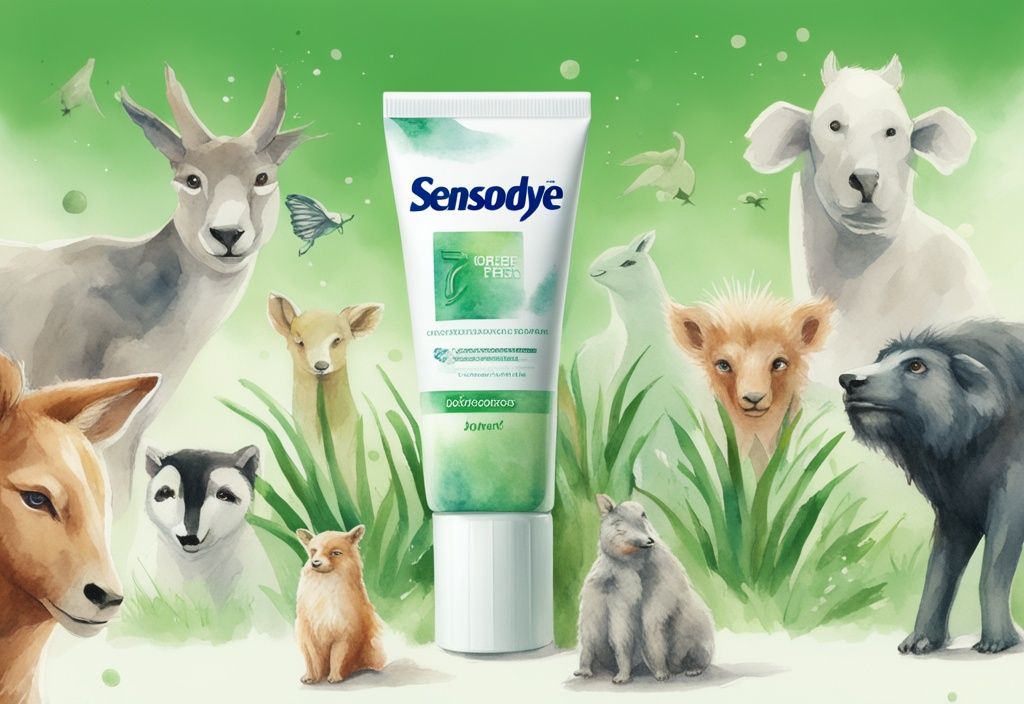
By prioritizing these factors, you can comfortably choose a cruelty-free toothpaste brand that meets your oral care needs while adhering to ethical and humane standards.
FAQ: Answering Your Queries About Sensodyne’s Cruelty-Free Status
Understanding the cruelty-free status of Sensodyne can be a bit overwhelming. Here, we’ll break down the key aspects so that you can make an informed decision.
Is Sensodyne really not cruelty-free?
Sadly, the answer is no. While Sensodyne is a popular choice for those with sensitive teeth, their commitment to animal testing in certain regions prevents them from achieving cruelty-free status. It’s a complicated issue, largely driven by legal requirements in specific markets.
What forces Sensodyne to conduct animal testing?
The driving force behind Sensodyne’s animal testing practices is primarily legal obligations in places like Mainland China. Regulatory authorities in these regions require such tests for safety assessments. Sensodyne’s parent company, GSK, has to comply with these regulations to continue selling their products in these markets.
What are some cruelty-free alternatives to Sensodyne?
If a cruelty-free dental care routine is important to you, there are numerous alternatives to Sensodyne that don’t compromise on efficacy or ethics. Brands like Tom’s of Maine, Hello Products, Dr. Bronner’s, Burt’s Bees, and Jason Natural offer excellent choices. These brands are certified by reputable organizations and provide a wide array of trusted dental products.
Switching to any of these alternatives supports cruelty-free practices while ensuring your oral health remains in tip-top shape. It’s a small change that can make a big difference in your compassionate living journey.
Hi, I’m Olivia Green, the voice behind nontoxicways.com. I’m passionate about helping you make the shift to a healthier, non-toxic lifestyle without feeling overwhelmed. I love sharing my personal journey, from small changes to big transformations, along with practical tips that make it all feel doable. My goal is to inspire and guide you toward a lifestyle that benefits both your well-being and the planet. Let’s take this journey together, one simple step at a time!
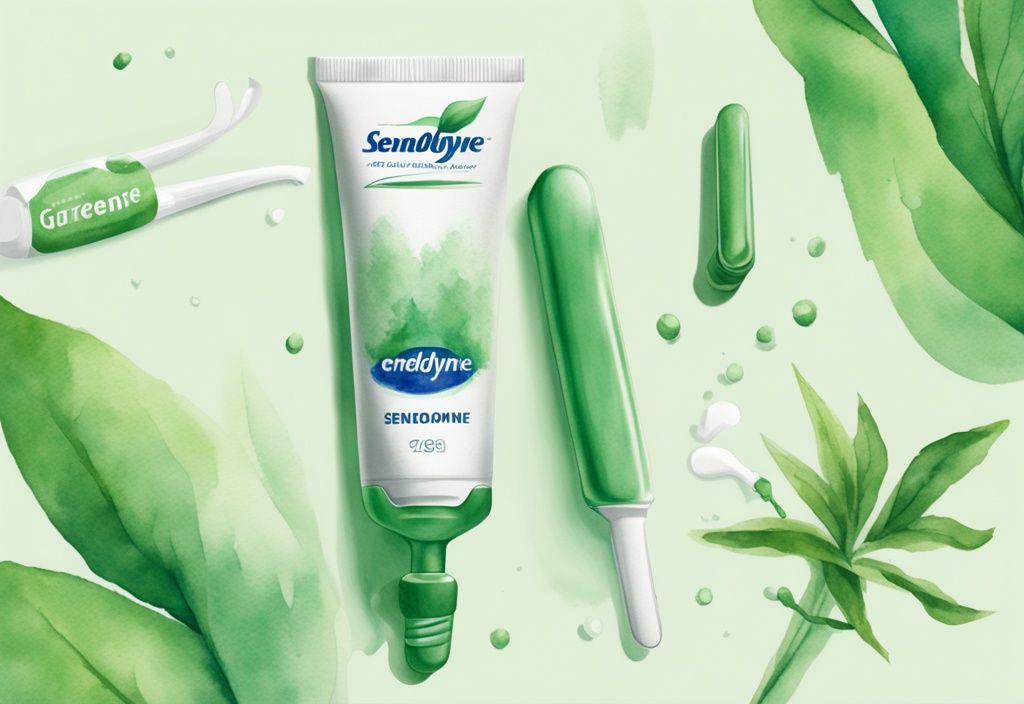











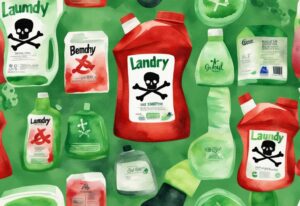

Post Comment